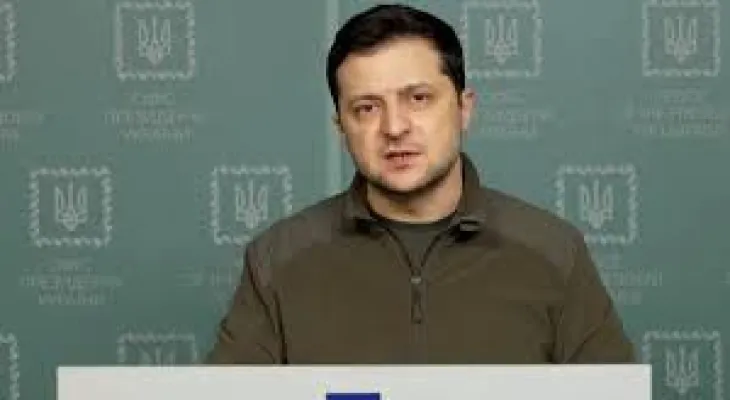Search here
Newspaper
Search here

Arab Canada News
News

Published: May 4, 2024
Russian state media reported on Saturday, citing the Interior Ministry's database, that Russia has placed Ukrainian President Volodymyr Zelensky on its wanted list.
As of Saturday afternoon, both Zelensky and his predecessor Petro Poroshenko appeared on the ministry's list of individuals wanted for unspecified criminal charges. Russian officials did not immediately clarify the allegations against Zelensky and Poroshenko, and the independent Russian news agency Meduza claimed on Saturday that both had been on the list for months.
In a statement published online on the same day, the Ukrainian Foreign Ministry rejected reports of Zelensky's listing as a sign of "the desperation of the Russian state machine and propaganda."
The Russian wanted list also includes dozens of officials and lawmakers from Ukraine and NATO countries. Among them is Kaja Kallas, the Prime Minister of NATO and EU member Estonia, who has strongly called for increased military aid to Kyiv and stronger sanctions against Moscow.
Russian officials stated in February that Kallas is wanted because of Tallinn's efforts to remove Soviet-era monuments to Red Army soldiers in the Baltic state, in a delayed cleansing of what many consider symbols of past oppression.
Latvia, Lithuania, and Poland, NATO member states, have also removed monuments widely seen as an unwelcome legacy of Soviet occupation in those countries.
Russia has laws that criminalize "rehabilitating Nazism" and include penalties for "desecrating" war memorials.
The Russian list also includes ministers from Estonia and Lithuania, as well as the prosecutor of the International Criminal Court, who last year issued an arrest warrant for President Vladimir Putin on charges of committing war crimes. Moscow has also accused Ukrainian military intelligence chief Kyrylo Budanov of what it considers "terrorist" activities, including Ukrainian drone strikes on Russian infrastructure.
The Kremlin has repeatedly sought to link Ukrainian leaders to Nazism, despite the fact that the country has a democratically elected Jewish president who lost relatives in the Holocaust, and despite the goal of many Ukrainians to reinforce democracy in the country, reduce corruption, and move closer to the West.
Moscow has defined "denazification, disarmament, and neutrality" for Ukraine as key objectives of what it insists on calling a "special military operation" against its southern neighbor. The claim of "denazification" refers to Russia's false assertions that the Ukrainian government is heavily influenced by extremist nationalist and neo-Nazi groups — a claim that Kyiv and its Western allies have mocked.
The Holocaust, World War II, and Nazism have been important tools for Putin in his attempts to legitimize Russia's war in Ukraine. World War II, in which the Soviet Union lost an estimated 27 million people, is a cornerstone of Russian national identity, and officials feel anger at any questioning of the role the Soviet Union played.
Some historians say this is coupled with an attempt by Russia to rewrite some historical facts about the war. They argue that Russia has sought to amplify the Soviet role in the defeat of the Nazis while downplaying any cooperation by Soviet citizens in the persecution of Jews, alongside allegations of Red Army soldiers committing crimes against civilians in Eastern Europe.
Comments